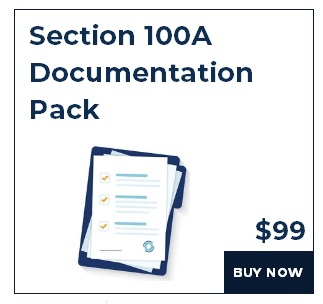
ATO Updates
Superannuation – Indexation of the general transfer balance cap
The ATO has announced that from 1 July 2021, the general transfer balance cap which currently sits at $1.6 million will be indexed to $1.7 million. However, every individual will have their own personal transfer balance cap of between $1.6 million and $1.7 million. To have access to the full $1.7 million cap, you must not have started a retirement phase income stream before 1 July 2021. If you have (or had) a pre-existing income stream, your cap will be proportionally indexed based on your highest ever balance in your transfer balance account. For example, if the balance of your transfer balance account has been $1.6 million at any time prior to 1 July 2021, your personal transfer balance cap will remain at $1.6 million.
If you have clients wanting to start a retirement phase income stream and can wait until 1 July 2021, waiting will allow them to put an extra $100,000 in to support the income stream. The total superannuation balance limit that determines if an individual can make non-concessional contributions will also increase from $1.6 million to $1.7 million. However, we are still waiting to find out if the contribution caps are also changing, as they are linked to a different index.
Matters under consultation updated: Section 100A reimbursement agreements
The ATO has updated its matters under consultation including the proposed draft Taxation Ruling on ‘reimbursement agreements’ under section 100A of the Income Tax Assessment Act 1936 (Cth). This Taxation Ruling will set out the Commissioner’s views on the exclusions from a ‘reimbursement agreements’ for (i) agreements not entered into with a purpose of reducing or eliminating income tax and (ii) agreements entered into in the course of ‘ordinary family or commercial dealings’. While the ATO has not provided a date when the ruling will be released, they have said that consultation will recommence this month and is expected to conclude in April 2021.
Cases
Chief Commissioner of State Revenue v Benidorm Pty Ltd [2020] NSWCA 285 – NSW duties: “Declaration of trust” not dutiable
The NSW Court of Appeal dismissed the Chief Commissioner’s appeal finding that a document titled “Declaration of Trust by Nominee” was not liable to duty as it did not have any legal effect. The Court stated the document merely confirmed an existing state of affairs following the grant of probate.
This decision can be contrasted with the decision of the High Court last year in State Revenue v Rojoda Pty Ltd [2020] HCA 7. In Rojoda, a Western Australian duty case, a similar issue was considered in the context of a partnership. The High Court held that the deeds executed to ‘confirm’ the partners’ interests in land amounted to declarations of trust which were dutiable transactions as they created new fixed trusts over the parcels of land.
While the NSW Court of Appeal decision provides some comfort, care still needs to be taken before you execute any document which could be construed as declaring a trust. You don’t want to end up with a nasty duty surprise!
Appeals
The following case is scheduled to be heard by the High Court on 11 February:
- FCT v Addy [2020] FCAFC 135 (the ‘backpacker tax’ case).
Special leave applications have been made to the High Court of Australia by:
- The Chief Commissioner of State Revenue (NSW) from the decision in Chief Commissioner of State Revenue v Downer EDI Engineering Pty Ltd [2020] NSWCA 126 (payroll tax);
- The Commissioner from the decision in Carters & Ors v FCT [2020] FCAFC 150 (disclaimers of trust income); and
- The taxpayer from the decision in Dental Corporation Pty Ltd v Moffet [2020] FCAFC 118 (superannuation guarantee).
The taxpayer has appealed the following case to the Federal Court:
- Hedges v FCT [2020] AATA 5307 (goodwill and work in progress payments to retired law firm partner – summarised in the Birchstone Brief for the week ended 8 January 2021).

